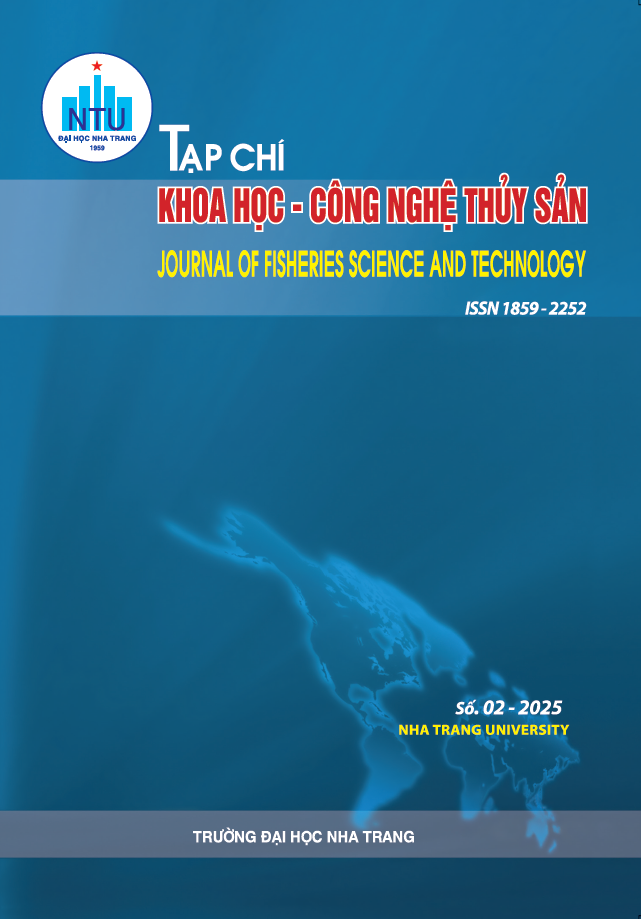##plugins.themes.huaf_theme.article.main##
Abstract
ABSTRACT
Carbon neutrality has been proposed due to growing concerns about the consequences of increased CO2 in the atmosphere. This study evaluates the potential contribution of seaweed farming to achieving Vietnam's carbon neutrality by 2050 using a novel approach that includes lost particulate organic carbon (POCl) and dissolved organic matter (DOC) excreted from seaweed cultivation. Based on seaweed production during the years of 2019–2023 in Vietnam, harvested seaweed removed 31,898 tons of carbon from seawater and farmed seaweed sequesters 18,118 tons of carbon annually. Among the three groups/species of cultivated seaweed, the Eucheumatoid group has the highest ability to remove (5.16 tons ha-1 year-1) and sequester (2.93 tons ha-1 year-1) carbon. This study shows that seaweed cultivation can play an important role in achieving carbon neutrality in Vietnam in 2050.
Key words: Carbon neutrality, seaweed, Vietnam.

